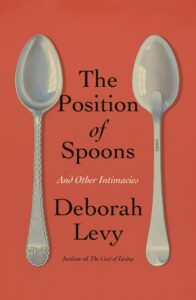
All or Nothing: Deborah Levy on Marguerite Duras’s The Lover
“Duras never covertly apologizes for the moral or psychological way that she exists in the world.”
The purpose of language for Duras is to nail a catastrophe to the page.
She thinks as deeply as it is possible to think without dying of pain. It is all or nothing for Duras. She puts everything into language. The more she puts in, the fewer words she uses. Words can be nothing. Nothing. Nothing. Nothing.
It is what we do not do with language that gives it value, makes it necessary. Dull and dulling language is successful. Every writer knows this, makes a choice about what to do with that knowledge.
It’s hard, sometimes even absurd, to know things, even harder to feel things—that’s what Duras is always telling us. Her films are novelistic—voice-over, interior monologue—her fiction is cinematic: she understands that an image is not a ‘setting’ and that “it has to hold everything the reader needs to know.” Duras is never begging with words but she is working very hard and calmly for us. Her trick is to make it all seem effortless.
*
Translated European literature was once shockingly hard to find in Britain. I was twenty-nine when I first read Marguerite Duras’s 1984 masterpiece, The Lover, translated from the French by Barbara Bray. A revelation and a confrontation in equal measure, it was as if I had burst out of an oak-paneled nineteenth-century gentleman’s club into something exhilarating, sexy, melancholy, truthful, modern and female.
Duras is never begging with words but she is working very hard and calmly for us. Her trick is to make it all seem effortless.
If its cool, spare prose and flawless narrative design were somehow representative of the nouveau roman, largely associated with Alain Robbe-Grillet, it was clear to me that its major difference was that Duras did not distrust emotion. To write The Lover she drew on her early years living in Saigon with her impoverished mother and belligerent brothers. Structured as a kind of memoir, it is about a teenage girl living a peculiar colonial existence in French Indochina in the 1930s with her genteel but “beggar family.”
She decides to make something happen and starts to wear a man’s fedora hat and gold lamé shoes. In so doing, she suddenly sees herself “as another.” It’s a magic trick to separate from her deadening mother, and it works.
An elegant, wealthy Chinese man, twelve years her senior, is watching her on the ferry bus that crosses the Mekong River. When he risks offering her a cigarette, she notices that his hand is unsteady. “There’s the difference of race, he’s not white, he has to get the better of it, that’s why he’s trembling.”
She wants to make him “less afraid” so that he can do to her “what he usually does with women” and, perhaps in return, he might sometimes buy her brothers and mother a meal? In one of the most devastating and brutally truthful seductions ever written, the Chinese financier who, she discovers, owns all the working-class housing in the colony, drives her in his “funereal” limousine to his apartment on the edge of the city.
She undresses him, notices she desires him, panics, tells him he must never love her. Then she cries—about her mother’s poverty and because she often hates her. The Lover does not just portray a forbidden sexual encounter of mind-blowing passion and intensity; it is also an essay on memory, death, desire and how colonialism messes up everyone.
I’m not convinced a book as incandescent as The Lover, more existential than feminist, would be published today. Not in Britain, anyway. Questions would arise. Are the characters likable (not exactly), is it experimental or mainstream (neither), is it a novel or a novella? Fortunately for Duras, it didn’t matter to her readers. It sold a million copies in forty-three languages, won the Prix Goncourt and was made into a commercial film.
Marguerite Duras was a reckless thinker, an egomaniac, a bit preposterous really. I believe she had to be. When she walks her bold but ‘puny’ female subject in her gold lamé shoes into the arms of her Chinese millionaire, Duras never covertly apologizes for the moral or psychological way that she exists in the world.
__________________________________

Excerpted from The Position of Spoons: And Other Intimacies by Deborah Levy. Published by Farrar, Straus and Giroux, an imprint of Macmillan, Inc. This piece first appeared in The Independent. Copyright © 2024 by Deborah Levy. All rights reserved.
Deborah Levy
Deborah Levy writes fiction, plays, and poetry. Her work has been staged by the Royal Shakespeare Company, broadcast on the BBC, and widely translated. The author of highly praised novels, including three Booker-nominated titles, The Man Who Saw Everything, Hot Milk and Swimming Home, the acclaimed story collection Black Vodka, and two parts of her working autobiography, Things I Don’t Want to Know and The Cost of Living, she lives in London. Levy is a fellow of the Royal Society of Literature.



















